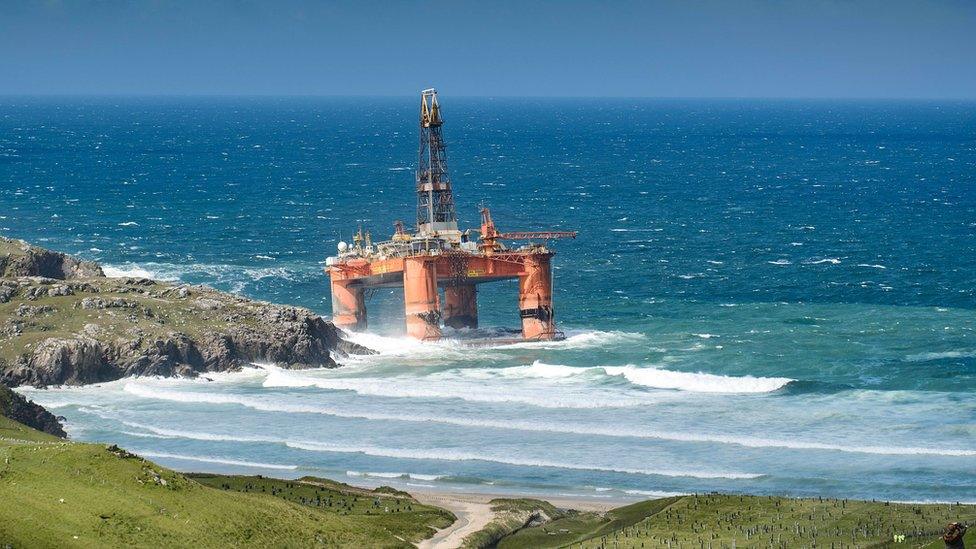Bauble, pipes, Lego, an oil rig: Weirdest things to wash up on a beach
- Published
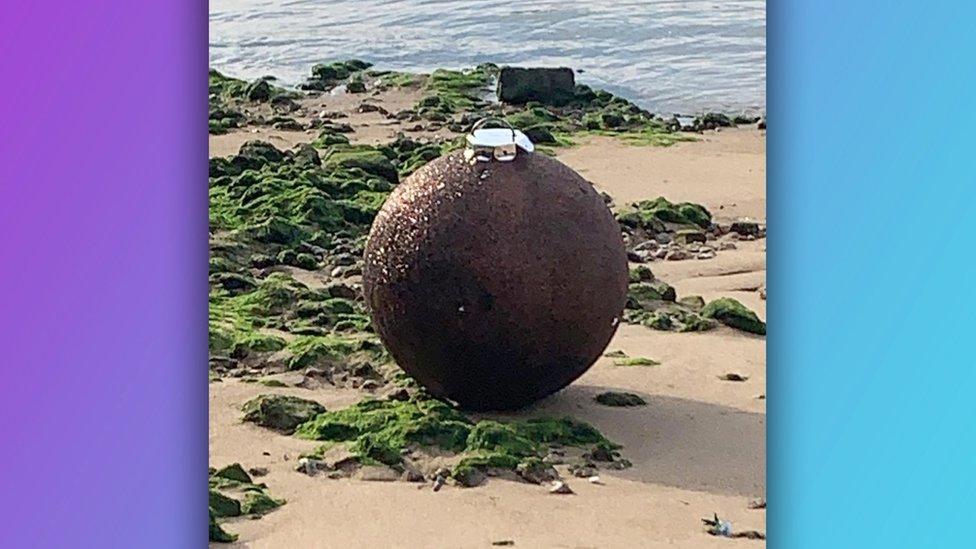
Police officers called to a beach in Wapping to investigate a possible 'unexploded device' were surprised to learn that it was in fact... a Christmas bauble. Tower Hamlets Police shared a picture of the bauble on Twitter, saying: "Officers were called to Wapping to investigate a possible unexploded device that had been washed up on the shore. Luckily, upon closer inspection, it is a giant glittery Christmas bauble! 🎄🎅" People responded by joking about how big the Christmas tree must have been to hold a bauble of that size!
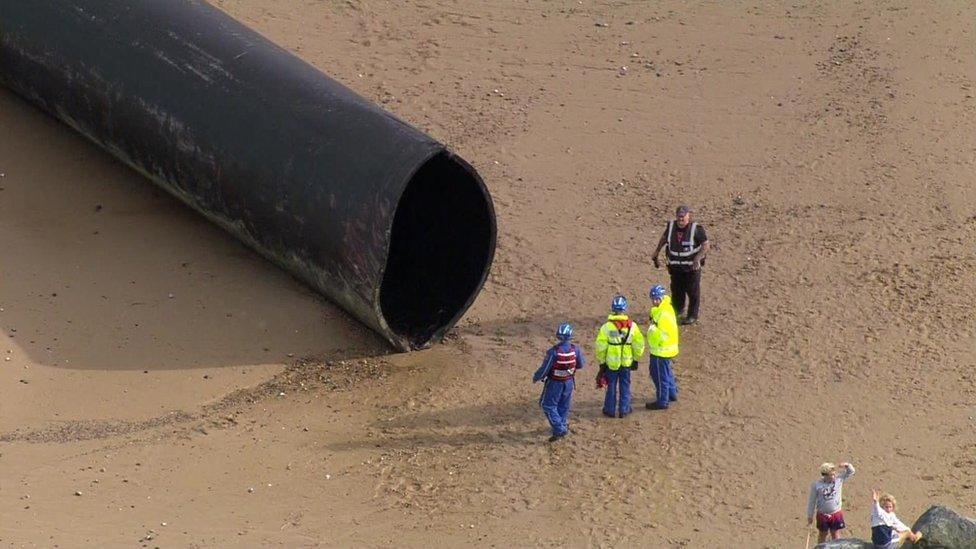
In August 2017, two enormous plastic pipes washed up on beaches at Winterton and Sea Palling in Norfolk, England. They were 450 metres long and came loose whilst being transported to North Africa. Ten more pipes were reported to still be out at sea at the time - we hope they found them all!
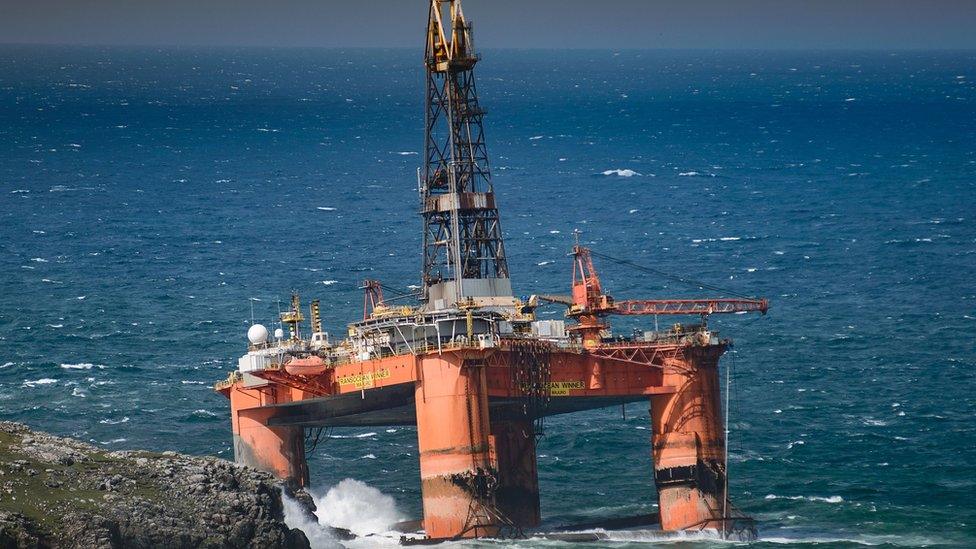
Well this *certainly* isn't a Christmas bauble! In the summer of 2016, a giant oil rig washed up on to a beach on the Isle of Lewis in Scotland. The rig was being transported by sea from Norway to Malta when stormy weather hit and it became separated from the boat that was pulling it along.
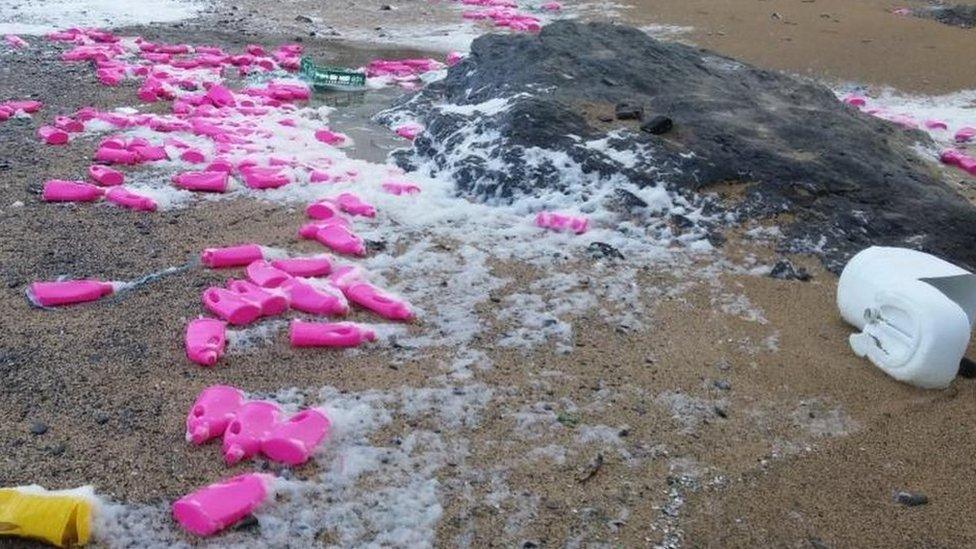
Also in 2016, thousands of bright pink plastic detergent bottles washed up on beaches in Cornwall. Most of the bottles were sealed closed, but it's thought that some may have leaked so people were told to avoid the beaches until they were cleaned.
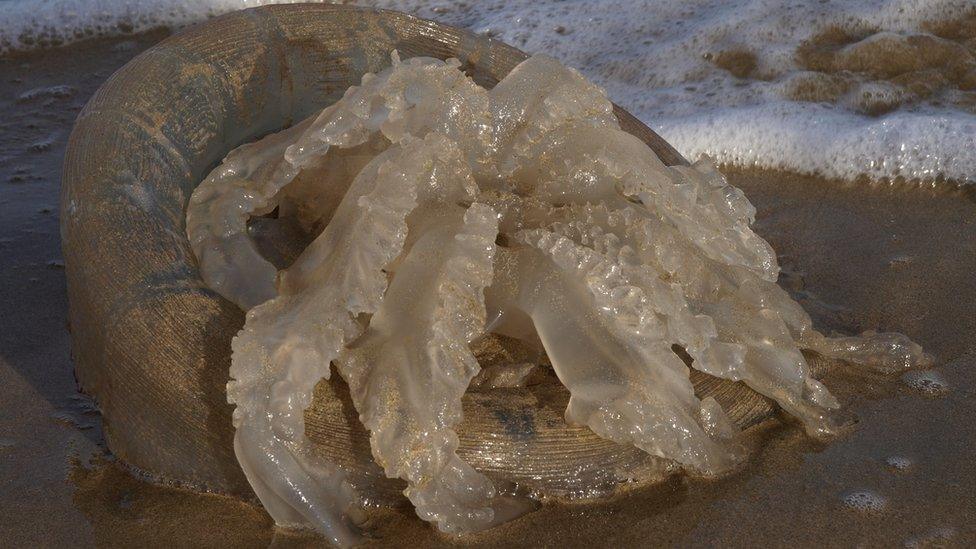
2014 saw dozens of huge barrel jellyfish wash up on beaches in Dorset. They are the biggest type of jellyfish found in UK waters. It's believed strong winds had brought the tide high and left some of the strange creatures stranded.
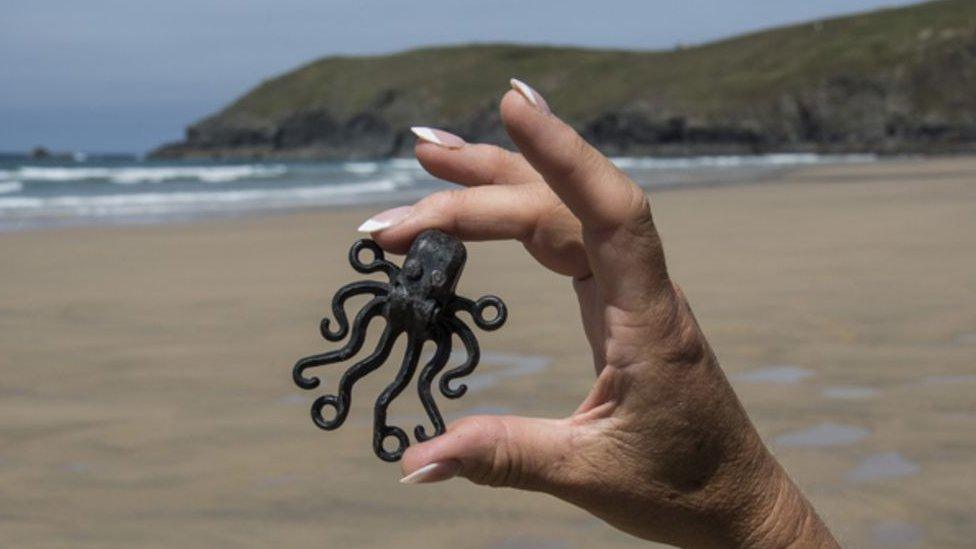
In 1997, a goods container filled with millions of Lego pieces fell off a ship and into the sea. Since then hundreds of Lego pieces have been washing up on beaches in Cornwall.
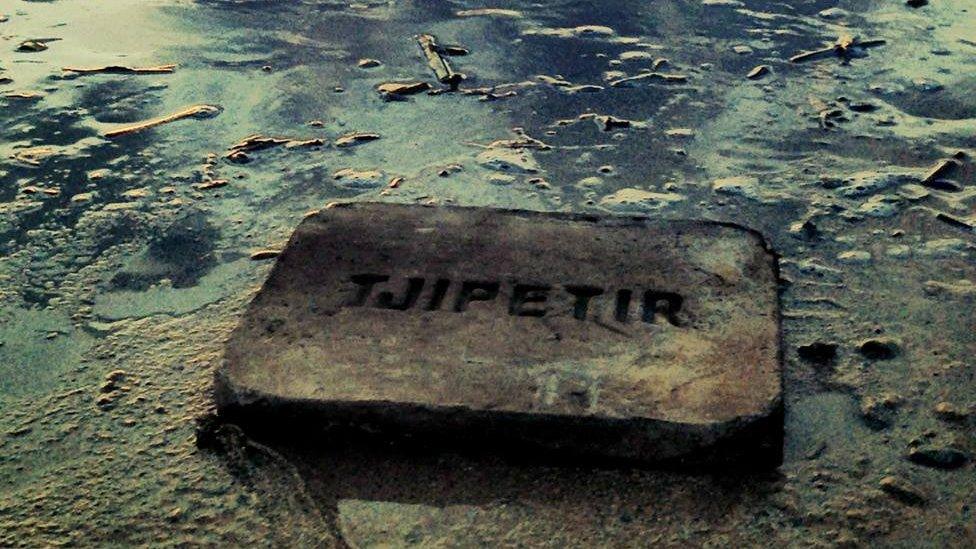
For years, blocks of a rubbery material engraved with the word TJIPETIR have been washing up on beaches all over Europe. It's believed the blocks may have originally come from a small Indonesian village that was the site of a Indonesian rubber plantation built in the 19th century.
- Published7 January 2015
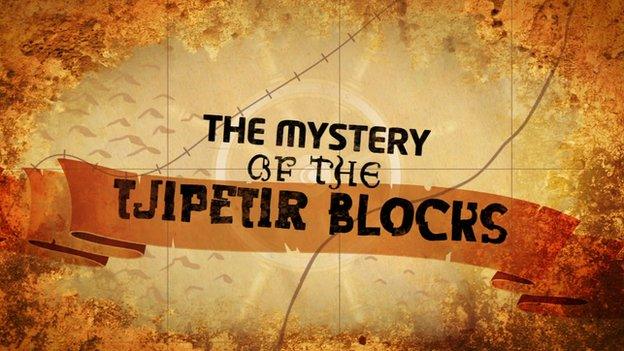
- Published11 February 2015
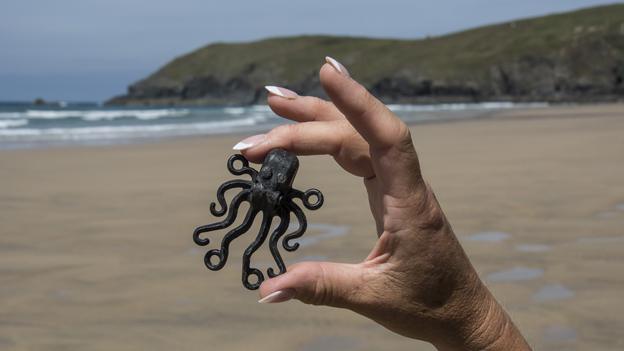
- Published5 January 2016
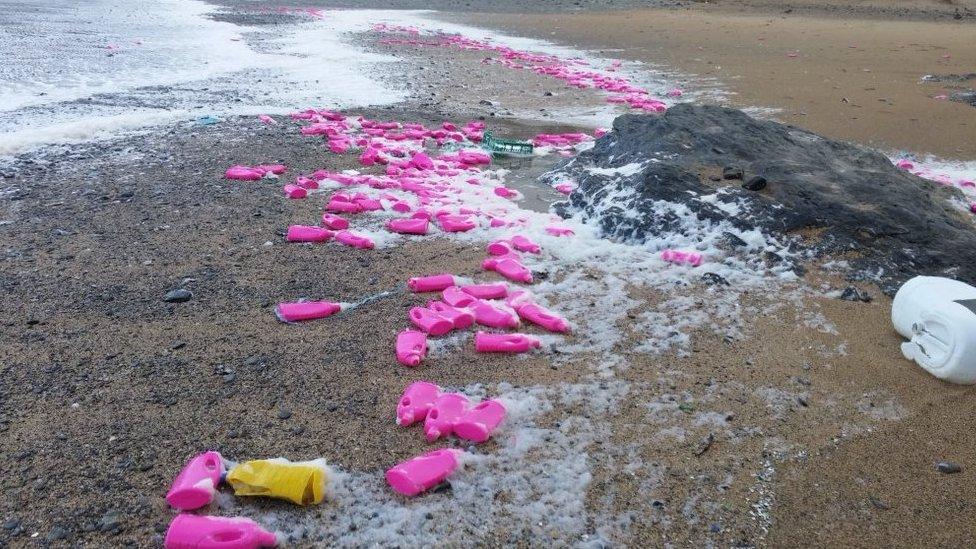
- Published12 May 2014
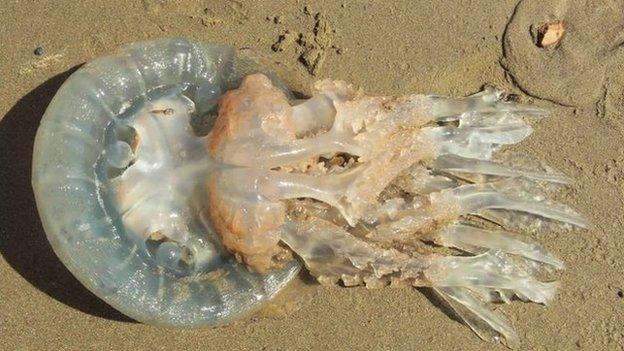
- Published23 August 2016
